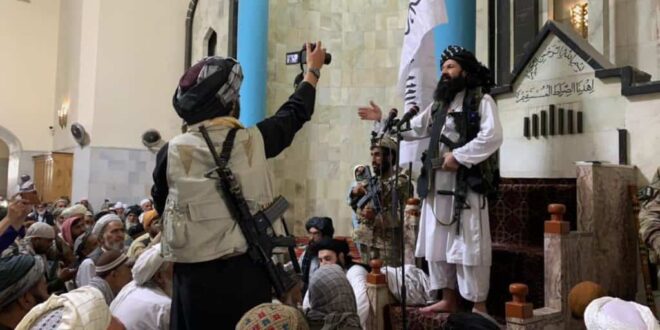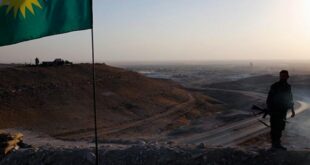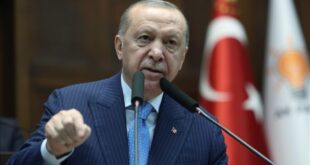Khalil al Rahman Haqqani, the Taliban’s minister of refugees and a terrorist wanted by the United States, was killed in a suicide attack today outside of his ministry building. Khalil served as the minister of refugees since the fall of the Republic of Afghanistan in August 2021.
Khalil’s death was confirmed on X by Taliban spokesman Zabihullah Mujahid. While no group has claimed credit for the attack at this time, it is highly likely that the Islamic State Khorasan Province, an enemy of the Taliban that has targeted Taliban leaders in the past, is responsible for the attack.
“The Islamic Emirate of Afghanistan expresses its deep sorrow and grief over the martyrdom of Hajji Khalil-ur-Rahman Haqqani, the Minister of Refugees, who was martyred in a tragic attack,” the statement posted by Mujahid said. “His untimely death represents a significant loss for the Islamic Emirate, the Afghan mujahideen, his family, and all Afghans.”
Mujahid’s statement describes Khalil as “a devout and tireless servant of Islam” who “devoted his entire life to serving refugees and the needy.” However, Khalil’s career was far less innocent and philanthropic, given his prominent role in the Haqqani Network and history with Al Qaeda.
Khalil was an uncle of Sirajuddin Haqqani, himself a Specially Designated Global Terrorist due to his close ties to Al Qaeda. Sirajuddin is perhaps the Taliban’s most influential and powerful leader. He serves as the Taliban’s interior minister and one of the two deputy emirs of the Islamic Emirate of Afghanistan. Sirajuddin also leads the Haqqani Network, which is a US-designated Foreign Terrorist Organization, and is one of the military masterminds of the Taliban takeover of Afghanistan in the summer of 2021.
Khalil’s brother, Jalaluddin, was a key founder of the Taliban and one of the group’s leaders who sponsored Osama bin Laden and other terrorist leaders in Afghanistan after they fled Sudan in 1996. Jalaluddin allowed Al Qaeda to establish training camps in areas under Taliban control. He also protected bin Laden and his cadre after the US invasion of Afghanistan in October 2001, in the wake of Al Qaeda’s attack on the US on September 11, 2001. Jalaluddin and Sirajuddin were instrumental in keeping the Taliban together and reuniting angry factions after it was disclosed in 2015 that Taliban leadership had hidden the death of Mullah Omar in 2013.
When the US Treasury Department designated Khalil as a terrorist in 2011, it noted that he “acted on behalf of” Al Qaeda’s military in Afghanistan. In 2002, when the US was hunting Osama bin Laden, Khalil deployed men “to reinforce al Qaeda elements in Paktia Province, Afghanistan.” The US State Department’s Rewards for Justice Program offered a reward of up to $5 million for information leading to his capture and prosecution. In addition to supporting Al Qaeda, Khalil has served as a key fundraiser, financier, and operational commander for the Haqqani Network.
In September 2021, immediately after the fall of the Republic of Afghanistan, Khalil was appointed the “acting” minister of refugees. It is highly likely that Al Qaeda’s personnel are considered “refugees” in Afghanistan. Khalil also played a leading diplomatic role in Kabul once the Taliban regained control, accepting pledges of loyalty to the newly restored Islamic Emirate of Afghanistan from various parties.
 Eurasia Press & News
Eurasia Press & News




